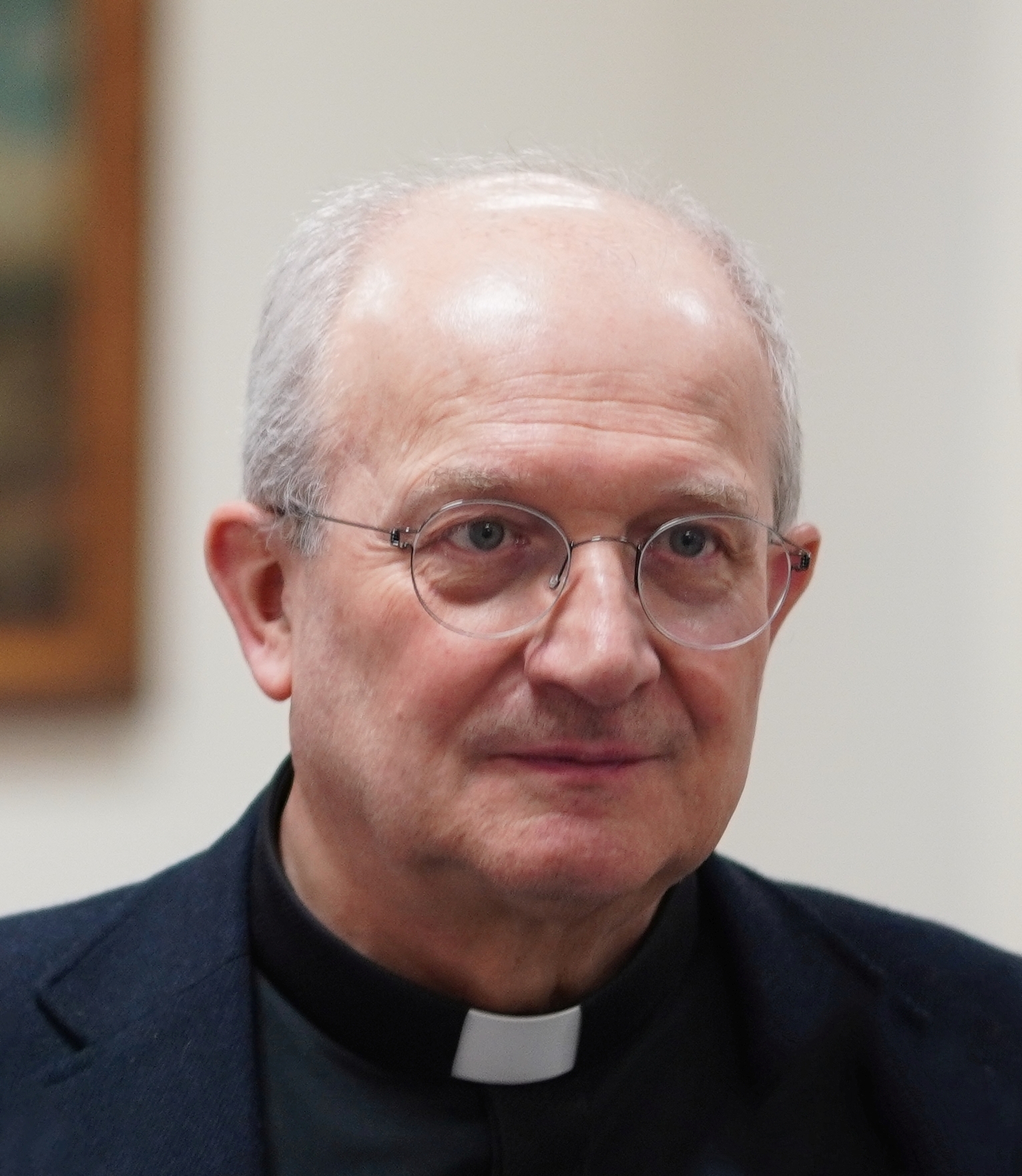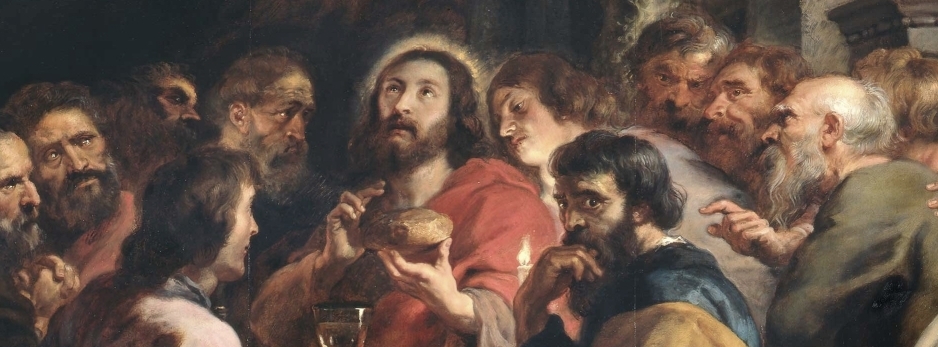This book gathers the contributions of the Congress that was organized by the Diocese of Alcalá de Henares in collaboration with the Veritas Amoris Project on May 8-9, 2021. It is a project on the “truth of love” launched precisely at this Congress. The following lines will serve to anticipate the answer to the question that this book seeks to answer: why this project and why this name?
The idea and the need for the initiative of the Veritas Amoris Project emerged in conversations and in dialogues among some of the professors who had for many years worked together at the John Paul II Institute for Studies on Marriage and Family, in its central session in Rome and in the various international sections.
Working at the Institute had been a great and fundamental experience which allowed us to experience the fruitfulness of St. John Paul II’s proposal for the life of families, for the Church’s pastoral action, and for the development of theological thought. It had been an experience of great novelty and creativity, intellectually fruitful and touching life, capable of forming people in pastoral work and research. It had finally been also an experience of communion, and we would also say of family, in which we experienced the truth of St. Albert the Great’s motto: “Seeking the truth in the sweetness of friendship.”
Now, these fruitful years have made us ask ourselves: how can we continue to be at the service of the Church and the family in society? We understood that we had to remain faithful to the inheritance we had received, developing it with a constructive attitude. In this, we have found great support and advice in the company of each other, our students, our families and many colleagues from all over the world.
Very concisely, we would like to indicate two fundamental issues concerning the reasons inspiring the Veritas Amoris Project: the first point concerns the crisis situation in which we find ourselves; the second regards fruitful strategies that we deem necessary in this historical situation.
We would briefly like to indicate two fundamental points concerning the reasons inspiring the Veritas Amoris Project: the first refers to the current crisis situation; the second regards paths to fruitfulness that we feel it is necessary to open in this historical situation.
1.
We can begin with a phrase from the Venerable Fulton Sheen, who as early as in 1947 asked, “Why do so few people realize the gravity of our present crisis?” He answered, “Only those who live by faith really know what is happening in the world.”[1] Also the first President of the John Paul II Institute, Carlo Cardinal Caffarra stated shortly before his death: “Only a blind man can deny that there is great confusion in the Church today.”[2]
The seriousness of the crisis explains why we feel uncomfortable in facing it plainly and in considering its origins. A book by a church historian, Andrea Riccardi, has recently come out in Italy, outlining the tremendous situation of Christianity today, in Europe especially, but also in the entire Western world: La Chiesa brucia. Crisi e futuro del cristianesimo[3] [The Church is Burning. Crisis and Future of Christianity]. The author is not a “doomsayer,” but a personality beyond any suspicion of restorationism, none other than the founder of the Community of “Sant’Egidio.” His diagnosis is stark and ends with the disturbing question of whether Christianity in the West has perhaps reached its terminal phase. Have we passed the point of no return in a process that is destructive of the Christian faith?
In his day, John Paul II identified a way of overcoming the crisis, which involved uniting the question of the Christian faith with the question of true love. According to the Polish Pope, the crisis of faith is inseparable from the crisis of love, relegated by modernity to a sentiment that is beautiful, but insufficient for building one’s life upon it. People appreciate love, they like to have it as a part of their daily lives, but they do not trust it. That is to say, they do not trust that it is possible to build on it something that lasts, something that does not remain a private experience but becomes a common life.
And this crisis of love, we said, is inseparable from the crisis of the Christian faith, because the Christian faith confesses that God has revealed himself as the fullness of love, and has done so precisely through human love. This entails that the total truth of God is revealed in a concrete, bodily love, by God sending his Son made man, who was born, worked, suffered and rose again in a real body. Hence, the experience that love has a truth, an experience that is uniquely given in marriage and the family, disposes us to welcome and accept the presence of God in the midst of our body and our time. And this acceptance is the center of the faith.
In fact, the loss of a truth of love today runs parallel to the difficulty of proclaiming and living the faith. With regard to the themes of human love, marriage and the family, what has rightly been called an anthropological “deregulation” is currently underway, that is, the attempt to reinvent, according to each individual’s own lights, the meaning of sexual difference, of what it means to be a man or woman, the meaning of the word “family.”
The underlying thesis is that love has no truth, or that it has only the truth that each one wishes to assign to it. But let us remember Antonio Machado:
Your truth? No, the Truth, and come with me to look for it. Your truth, do keep it for yourself.[4]
The poet reminds us that there is no truth that is yours or mine, but that there is only the truth that is ours, and that it is necessary to search for it together. And this is so precisely because truth is inseparable from communion. Just as a truth without love is cold and distant, so a love without truth is also cold in the long run, for it does not allow us to come out of ourselves, but confines us to our sentiments.
In one of his last great discourses, addressing the Vatican Curia on the occasion of his Christmas greetings in 2012, Pope Benedict XVI, too, maintained that the question of the family is intimately related to the very question of human identity and therefore to the question of God. If we lose the experience of being a son and daughter, brother and sister, husband and wife, father and mother, then the natural basis that language has for speaking about God will also be destroyed: God, after all, has revealed himself as the spouse of Israel, whom we invoke as our Father, who has sent us Jesus, his Son and our brother, and who has given us the Church as mother.
The temptation for the Church today is to conform to the worldly vision of a private truth and of a love that is a mere sentiment. For then the Christian faith itself is deformed, trapped in emotivism and incapable of sustaining the common life of humanity. We can quote a phrase of the then Cardinal Ratzinger who, referring to the cross, also refers to our basic theme: the link between truth and love:
A Jesus who is in agreement with everybody and anybody, a Jesus without his holy wrath, without the toughness of the truth and of true love, is not the true Jesus as Scripture shows him but a miserable caricature. … True forgiveness is something quite other than weakly letting things be. … A Jesus who approves of everything is a Jesus without the Cross, because the tribulation of the cross would not then be needed to bring men and women salvation. In fact to a noticeable extent the Cross is being interpreted out of theology … The Cross as atonement, the Cross as a way of forgiving and redeeming, does not fit into a certain modern pattern of thought. It is only when the connection of truth and love is seen properly that the cross becomes understandable in its true theological depth. Forgiveness has to do with truth, and for that reason it requires the Cross of the Son and requires our conversion. Forgiveness is indeed the restoration of truth, the renewal of being, and the overcoming of the lie that lurks in every sin.[5]
2.
What does the Lord desire of us in this time of crisis and trial? The first attitude is certainly that of faith in Providence, which not only will not abandon us, but also uses trials to purify us, to make us grow, and to make the Kingdom of God grow. “Every branch that bears fruit he prunes to make it bear more fruit” (Jn 15:2). In the early Church, the persecution of the Church in Jerusalem and the dispersion of the disciples were the occasion of a missionary spread of God’s word (cf. Acts 8:1-4).
Moreover, what moves and determines us is not the difficult situation of a crisis, however serious it may be. In other words, we do not act in reaction to the problems that afflict us, but motivated by the greatness of the gifts that have been entrusted to us. What moves us is the beauty of God’s plan for marriage and the family and the splendor of the Christian faith in love. For when John Paul II said, “Do not be afraid,” he was referring above all to the fear of accepting God’s call to love. That is to say: do not be afraid to live up to the love that God himself has shown you and to the greatness that this love promises.
The goals we pursue with the Veritas Amoris Project are inspired by faith and lived experience. In the first place, there is the importance of preserving a vivid communion where the search for truth is fostered. It is about guarding the grace of friendship, not only as a consolation, but as a working method. In this way it will be possible to work for the promotion and support of those “creative minorities” that carry within themselves the hope for and the seed of the future, but that at this moment are little supported and feel lonely and rather abandoned. It is therefore necessary to create networks and offer opportunities and instruments of formation, of judgment, of participation.
Secondly, in terms of content, our project focuses on the “truth of love” as the key to offering light and strength to today’s society and to the Church. For love saves us when it helps us to go out of ourselves and to enter into alliances with our brothers and sisters, on the way to a transcendent fullness. Or, in other words: love saves human beings if love is inseparable from truth. In this way our project is placed at the service of edifying the common good, which is based on the shared truth. Moreover, the confession of a truth of love is decisive for the acceptance of the Christian faith. For only on the basis of a truth of love is it possible to confess that the Word, who is the truth of God, has become flesh and dwelt among us in order to reveal the fullness of love.
Saint John Paul II’s theology of the body and Benedict XVI’s theology of love can show their fruitfulness on the path that Pope Francis indicates to the Church today: that of solicitude and pastoral realism, which knows how to take seriously concrete situations in order to heal wounds and to rehabilitate the sick, so that they can set out on their way again. This is a massive challenge that shows both the insufficiency of merely repeating norms and the inadequacy of simply adapting norms to human frailty. Thus, the urgency of regenerating the Christian moral subject and, therefore, the primacy of moral formation is brought to the forefront.
-
F.J. Sheen, “Signs of Our Times”, in Light Your Lamps, Our Sunday Visitor, Huntington, IN 1958, 5-17. ↑
-
Interview given to Matteo Matzuzzi, Il Foglio, 14 January 2017. ↑
-
A. Riccardi, La Chiesa brucia. Crisi e futuro del cristianesimo, Laterza, Bari 2021. ↑
-
A. Machado, Proverbios y cantares 85, Madrid 2003. ↑
-
Joseph Ratzinger, To Look on Christ: Exercises in Faith, Hope, and Love, The Crossroad Publishing Company, New York 1991, 88. ↑
Share this article
About Us
The Veritas Amoris Project focuses on the truth of love as a key to understanding the mystery of God, the human person and the world, convinced that this perspective provides an integral and fruitful pastoral approach.



